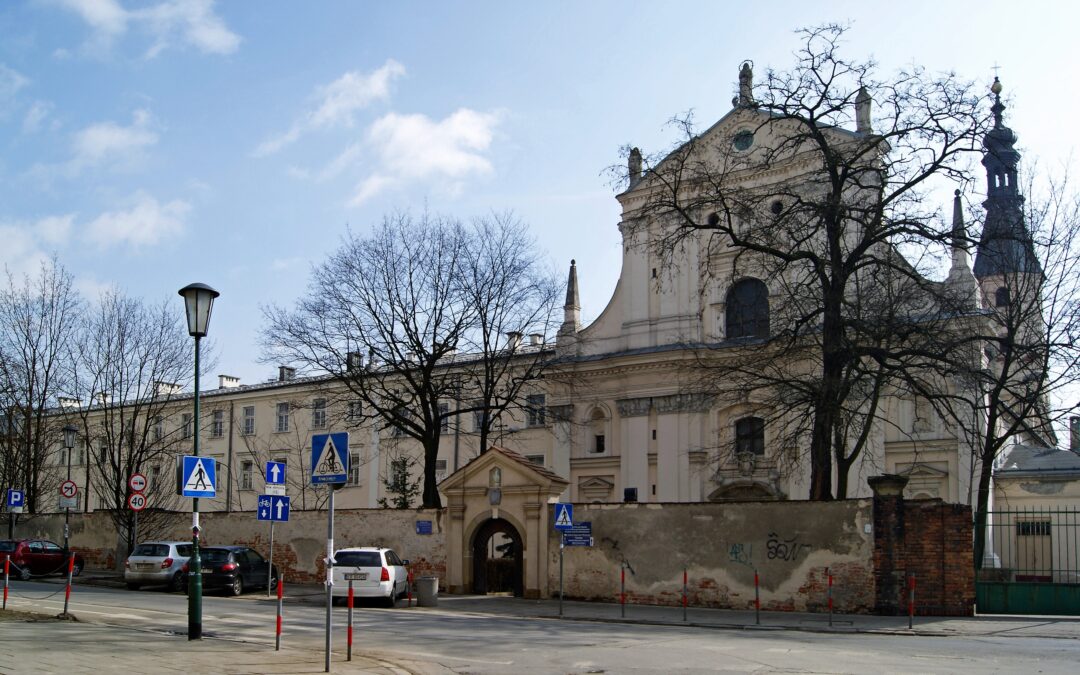Congregants of a Catholic church owned by the city of Kraków are protesting against the proposed repurposing of the building. Local activists want it to be deconsecrated and turned into a concert hall, saying that this would better serve the community and that there are other churches nearby.
Kraków took ownership of the 18th century church of the Immaculate Conception of the Virgin Mary – which had been part of the University Hospital medical complex in the Wesoła district close to the city centre – after the city purchased the whole complex when the hospital moved elsewhere.
“The University Hospital wanted to sell the whole site in one go,” explained Monika Chylaszek, spokesperson of the mayor of Kraków, to Catholic outlet Gość Niedzielny. “Therefore the city purchased medical clinics, green areas and the church as well.”
The whole sale price amounted to 280 million zloty (€62 million), with the church valued at 24 million zloty (€5.3 million).
One proposal for the former hospital buildings has been for them to host cultural institutions or bars and restaurants moved from Dolne Młyny, a post-industrial nightlife and culture hub recently forced to close by the developer that owns the former tobacco factory in which it was located.
But the fate of the still active church is an even more complicated issue. Under the current agreement, two masses a day are conducted in the building.
“The mayor spoke with the bishop about this church,” deputy mayor Andrzej Kulig told Gazeta Wyborcza. “But it turned out that the curia was not interested in buying it [and nor were] any religious orders.”
Regular attendees at the church are concerned that its fate remains “uncertain”, reports the newspaper. They describe it as as “shocking” that an undertaking to secure the building for religious practice was removed from the official site development plan issued by the city of Kraków.
“We cannot allow for such an unprecedented situation, seeing a used church turned into a conference hall or restaurant (!) and depriving a group of believers of a worshipping space,” wrote activists seeking to defend the church on a website created for the purpose.
They have also prepared a template document that can be used by their supporters to write to the city council and submit comments opposing the current site development plan.
However a local group called the Wesoła Collective sees things differently. They argue that, since Kraków purchased the whole area using public funds, all the city’s citizens should determine its future, and oppose the idea that “church jurisdiction” should “dictate how the city uses its own building”.
Czy drzewa będą wycinane na Wesołej? Jaki charakter ma mieć nowa dzielnica? Czy Kino ARS znajdzie tam nową siedzibę? Zapraszamy na wywiad z członkinią #KolektywWesoła ⤵️⤵️⤵️https://t.co/mSLLQjvnuY
— Akcja Ratunkowa dla Krakowa (@AkcjaK) December 16, 2020
During a public consultation organised by the city council, the collective submitted proposals to turn the church building into an “auditorium hall for concerts, performances, public gatherings and events”, pointing out its excellent acoustics. They say that this would much better serve the local community.
“Deconsecration of a church is not such a complicated or controversial act,” they state. “The only requirement is the consent of a local bishop.”
The activists stress that they are not opposed to “the presence of places of worship for the followers of different religions” in the city. But they note that there are three other Catholic churches on the same street.
In western Europe, where church attendance has fallen much further than in Poland, transforming places of worship into community centres, concert halls, bars, offices or even housing is not a new phenomenon.
According to the German Press Agency DPA, since the turn of the century more than 500 Catholic churches have been closed in the country. The Church of England notes that around 20 to 25 of its churches are closed annually, and that it seeks to “find new uses for these buildings”.
However, in Poland, where around 90% of the population are officially recognised as Catholic and almost 70% say that God plays an important role in their life, the idea of repurposing a religious building remains unacceptable for many.
Around 3,000 churches were built in Poland under communism, with the 'paradoxes' of a deeply religious society living under an atheist regime creating unique designs that 'are the most original Polish contribution to world architecture in the 20th century' https://t.co/A9iE2m9dTP
— Notes from Poland 🇵🇱 (@notesfrompoland) October 12, 2019
Main image credit: Zygmunt Put/Wikimedia Commons (under CC BY-SA 4.0)

Agnieszka Wądołowska is deputy editor-in-chief of Notes from Poland. She is a member of the European Press Prize’s preparatory committee. She was 2022 Fellow at the Entrepreneurial Journalism Creators Program at City University of New York. In 2024, she graduated from the Advanced Leadership Programme for Top Talents at the Center for Leadership. She has previously contributed to Gazeta Wyborcza, Wysokie Obcasy and Duży Format.




















